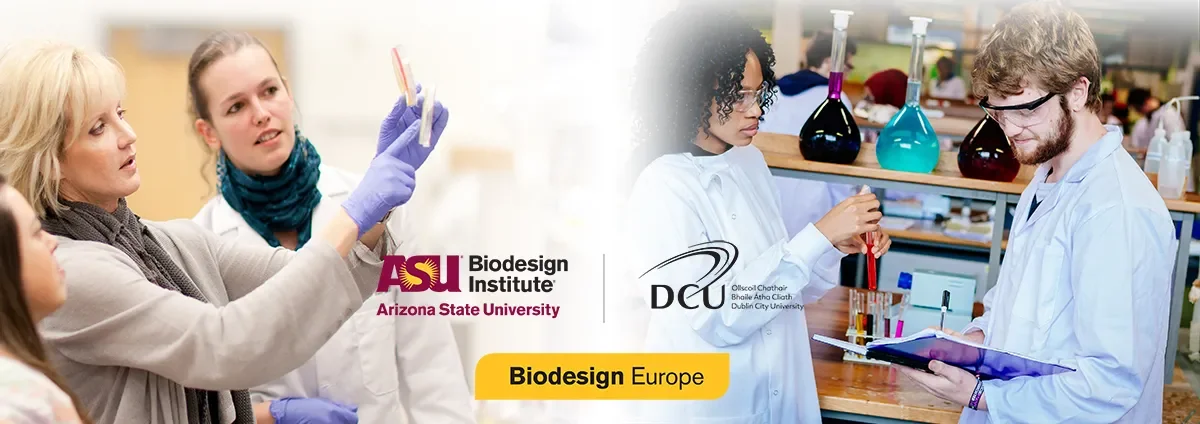

Turning to nature for transformational tech and healthcare solutions
Biodesign Europe, a newly established applied research centre at DCU, is turning to the natural world as a source of inspiration to drive tech and healthcare innovations.
Launched with Arizona State University’s Biodesign Institute, the centre is the result of a long-term
strategic partnership between DCU and ASU.
Researchers in DCU and ASU across healthcare technology, sustainable manufacturing, biotechnology and bioanalytical systems are currently working together across a spectrum of multidisciplinary projects.
Biodesign Europe focuses on the “discovery and translation of knowledge” and the development of
scientific innovations specifically in the areas of human health, community safety and global sustainability to respond to the many issues facing communities across the globe.
Reflecting DCU’s mission to “transform lives and societies”, it will prioritise translating scientific discoveries into industry-relevant technical responses that benefit society as a whole.
Currently, the team at Biodesign Europe are developing innovative medical device technology and
therapy-biomaterial combinations to combat life-threatening diseases and traumatic injuries.
“In collaboration with industry partners, we are investigating ‘next generation’ manufacturing methods specific to drive efficiency, selectivity and productivity - this is underpinned by computational modelling and the integration of artificial intelligence and machine learning. We are also leading in the discovery of new ways to clean up pollution, treat water and wastewater, capture renewable energy, and improve human health,” explained Executive Director, Professor Nicholas Dunne.
Under the directorship of Professor Dunne, also the Executive Director of the Medical Engineering
Research Centre Engineering (MedEng) and a funded investigator at I-Form (the SFI Research Centre for Advanced Manufacturing) and AMBER (the SFI Research Centre for Advanced Materials and BioEngineering Research), Biodesign Europe involves internationally renowned members from DCU’s academic and research community.
Spearheading thematic areas in Biodesign Europe are Prof Anne Parle-McDermott as Biotechnology Lead; Dr Aoife Morrin, Bioanalytical Systems Lead; Prof Fiona Regan as Health for Sustainability Lead, and Prof Dermot Brabazon as Sustainable Manufacturing Lead.
Biodesign Europe works closely with the ASU Biodesign Institute, the globally renowned research centre focused on research programmes that leverage natural processes to devise solutions to specific challenges such as mitigating natural disasters and enhancing sustainability.
The establishment of Biodesign Europe and the collaboration with ASU’s Biodesign Institute is also an acknowledgement of DCU’s long track record in the areas of knowledge transfer, enterprise engagement and industry partnerships.
This will be of significant benefit in translating findings from Biodesign Europe into technological and clinical developments.
Biodesign Europe is also utilising strategic partnerships within the existing global networks of DCU
and ASU. These include DCU’s strategic affiliation to the European Consortium of Innovative Universities (ECIU) and the Young European Research Universities Network (YERUN), and ASU’s partnerships with the Global Consortium for Sustainability Outcomes, Mayo Clinic, Banner Health and PLuS Alliance.
